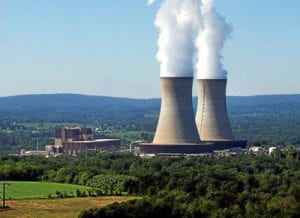Ecofeminism, according to Hobgood-Oster, is “simultaneously serving as an environmental critique of feminism and a feminist critique of environmentalism.” It is the connection between feminism and the environment. It is basically the belief that feminists must take care of nature, as it is a part of our world. Feminism is about equality. The earth/nature must be seen as our equal, otherwise we are hypocritically saying we are better than. Nature deserves rights as well, as it is also living. Ecofeminism wants to fight all forms of oppression. Typically, when we think of being oppressed, we think of the issues feminists have been championing for years – equal pay, the right to choose, etc. Intersectionality in feminism means that we need to fight for everyone. This includes those who may not have a voice or a platform to advocate for themselves. This is where ecofeminism comes in. The earth cannot verbally speak for itself. As feminists who care about rights, we need to step in and speak for the silent. Ecofeminism says that all forms of oppression are connected. In order to bring change, we need to consider all forms of oppression.
One of Warren’s eight connections between women and the environment I found interesting was her third point, “Empirical and Experiential Connections.” This is linking women and women’s actions to hurting the environment. Warren writes about it on a large scale – health risks borne primarily from women and children, or public environmental policy harming families. To look at it from an everyday issue, we could consider the use of pads/tampons. We know that using disposable items (take the war on straws, for example) is harmful for the environment. There are a growing number of states making regulations banning straws or plastic bags because they are wasteful. It may only be a matter of time until they come for disposable women’s products. It could be argued that somebody using multiple tampons a day, even just for one week out of a month, is more wasteful than using a single plastic straw a day. According to The Huffington Post, the average person who has a period will use more than 11,000 tampons or pads in their lifetime. This can be hurting not only the environment, but the user as well. Since tampons/pads are considered medical devices a la the FDA, companies are not legally required to tell us what all goes into the making of them like they would have to on a food label. The majority of mainstream pads/tampons contain non-biodegradable plastic – about the equivalent of four plastic bags. In addition to the plastics, many sanitary items contain bleached and nonorganic cotton. These are known to carry pesticides and herbicides. While the FDA claims that these carcinogenics are a negligible amount that won’t hurt the user…why would we WANT to be putting that in such a sensitive area?
This goes back to Warren’s third point about experiential connections between women and the environment. This is a feminist issue that affects anyone who experiences a period, and it is directly harming the environment by how we react to it. As feminists who want to respect the environment, we should find another way.
There are other more sustainable options that could be explored. I am not suggesting that people should just give up their feminine care products. I do think that an ecofeminist approach to periods could be using reusable products, such as a Diva Cup (https://divacup.com/)
Works Cited
Brendan. “Warren’s Introduction to EcoFeminism.” There It Is, 21 Jan. 2014, thereitis.org/warrens-introduction-to-ecofeminism/.
Hobgood-Oster, Laura. Ecofeminism: Historic and International Evolution . 18 Aug. 2002.
Mosbergen, Dominique. “The Ugly Truth About Tampons And Pads.” HuffPost, HuffPost, 28 Feb. 2019, www.huffpost.com/entry/plastic-free-tampons-pads_n_5c0e88a6e4b06484c9fce988.



